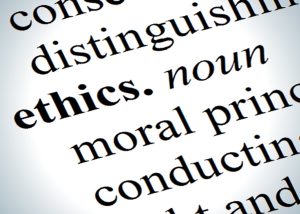Beyond the Code: putting PR ethics into practice
- November 30, 2015
- Author: Glenn Gillen, APR
- Category: Public Relations
While the overwhelming majority of PR practitioners I’ve encountered are upstanding and professional, it only takes a few bad apples exhibiting unethical behavior to taint the perception of the profession. Think of the Wal-Marting Across America blog that was actually run by a PR agency, or any instance of a spokesperson “spinning” the facts to mislead the public.
 I knew from my first week at S&A more than eight years ago that the firm prides itself on ethical behavior. Founder Ron Smith is a longtime member of the Public Relations Society of America, and as such, fosters an environment of honesty, openness and adherence to PRSA’s Code of Ethics.
I knew from my first week at S&A more than eight years ago that the firm prides itself on ethical behavior. Founder Ron Smith is a longtime member of the Public Relations Society of America, and as such, fosters an environment of honesty, openness and adherence to PRSA’s Code of Ethics.
While the Code serves as a good touchstone, I find that listing specific do’s and don’ts better illustrates how our staff puts these values into practice. Following are some examples from personal experience.
• I will not pay a media outlet nor share client/vendor information with them in order to get a story placed.
• I will discuss sponsored-content opportunities with clients as long as they are fully aware it’s an advertisement.
• I will not guarantee earned-media placements.
• I will utilize my expertise and relationships to optimize the potential for earned media.
• I will not send gifts to journalists in return for quid pro quo coverage.
• I will send vetted journalists and bloggers product samples and complementary passes to events in order to facilitate reviews.
• I will not deliberately send false or misleading information to a journalist.
• I will take corrective action and notify journalists if incorrect or incomplete information was inadvertently distributed.
• I will not create nor accept busy work to pad billable hours.
• I will honestly advise clients against strategies and tactics I deem unproductive or potentially damaging.
• I will not offer exclusives to more than one journalist at a time.
• I will develop mutually beneficial relationships with reporters/editors and determine which would make best use of information I possess.
• I will not slander competitors to gain clients and employees.
• I will respond appropriately when others slander or spread rumors about my company and my clients.
• I will not share or leak proprietary information provided by a client.
• I will respect confidentiality agreements.
• I will not take on a client that is a direct competitor of an existing client.
• I will disclose any potential conflicts of interest I, my family or friends, or our company has when taking on work.
• I will not anonymously post flattering comments about clients – or negative comments about their competitors – on social media.
• If I do post a comment on social media, I will disclose our firm’s professional relationship with the client.
Lastly, in writing this sample list, I couldn’t help but think of Mike Herman, APR, Fellow PRSA, who served as ethics chair for the North Carolina Chapter of PRSA before his untimely passing in January. When all else fails, I ask myself, “What would Mike Herman do?”
